Parliamentary items of interest this week include:
- Immersive entertainment
- How mental health services are failing the young and the mental health workforce crisis
- The use of AI in the education sector
Immersive entertainment
The Government has issued a press release on immersive entertainment:
Innovate UK: UK takes centre stage in immersive entertainment revolution
New projects will use £18 million funding to create cutting-edge immersive experiences in sports entertainment, visitor experience and live performance.
A total of £18 million government and industry funding has been awarded to projects developing the next generation of immersive experiences. Using virtual reality, augmented reality and mixed reality, the projects will create cutting-edge immersive experiences which will be tested at scale on real audiences.
The projects are part of the Industrial Strategy Challenge Fund’s audience of the future programme, delivered through UK Research and Innovation. Through this programme, government is helping the most talented storytellers across the UK create engaging immersive experiences.
Immersive sports, performance and visitor experiences
The demonstrator projects will develop immersive experiences in 3 areas; sports entertainment, performance, and visitor experience.
Performance
The Royal Shakespeare Company (RSC) will lead a consortium of 15 specialist organisations from the theatre, music, video production, gaming and research industries to create a live performance unbound by location. Audiences will use mobile phones, extended reality headsets and live streams to experience live performance like never before.
Visitor experience
Factory 42’s consortium will create 2 multi-sensory, interactive worlds in London’s Natural History Museum and Science Museum. At the Science Museum, visitors will take part in a mixed-reality detective experience featuring high-resolution 3D scans of robots. The Natural History Museum will bring dinosaurs to life through the story of a palaeontologist’s discoveries. Shorter versions of both experiences will tour shopping centres across the UK.
Sport entertainment
Esports – video games played competitively in front of a live audience – has the fastest growing audience for live sports globally. This project will create new esports platform called WEAVR that uses gameplay data to transform how remote audiences experience first esports, and further down the line physical sports.
WEAVR will be developed by a consortium that includes ESL, the largest esports content producer in the world, as well as academics and innovators across immersive technologies, data-driven content production and broadcast.
Leading digital and creative talent
Minister for Digital and the Creative Industries Margot James said: The UK is home to some of the world’s leading digital and creative talent. Through our modern Industrial Strategy and multi-million-pound creative industries sector deal, we are bringing them together to give audiences a truly unique experience. The growth of immersive technology has the power to transform the way in which we watch theatre, play games or go to the cinema, and these new projects will demonstrate how we can take people closer than ever before to the live action.
A new era of entertainment
Science and Innovation Minister Chris Skidmore said: We are now in a new era of how we consume entertainment, and these projects announced today could see us walking with dinosaurs and experiencing being in the stands of major football matches from our own living rooms. We have an impressive reputation of producing outstanding sport, cultural institutions and visual entertainment. That is why, through our modern industrial Strategy, we are building on these strengths to make the areas even more accessible and enjoyable to people, whilst supporting high-skilled jobs across the UK.
Changing cultural experiences
UK Research and Innovation Chief Executive, Professor Sir Mark Walport, said: New technologies being pioneered in the UK, such as virtual and augmented reality, are fundamentally changing the way we participate in cultural experiences, from watching dramatic performances and visiting museums to playing video games. Through investments such as the projects announced today, the government and UK Research and Innovation will support the creative industries to innovate in exciting ways that will deliver new experiences for audiences of the future with accompanying economic benefits.
Global opportunity for the UK
Professor Andrew Chitty, UKRI’s Challenge Director for Audience of the Future said: The market for immersive content is a global opportunity. The presence of international partners in these ground-breaking projects is a massive vote of confidence not only in UK research and innovation but in our creative companies who will ensure that the UK becomes a world-leading destination for immersive content production bringing the new jobs and investment that is central to the Industrial Strategy and the Creative Industries Sector Deal.
Mental Health / Mental Health Workforce
The Public Accounts Committee have released a report on Mental health – poor NHS provision is failing young people
The report found that:
– Most young people with a mental health condition do not get the treatment they need
– Government should step up action to increase staff numbers and develop required skills
– Cross-departmental planning must improve, with focus on prevention and early intervention
REPORT SUMMARY
In 2017-18 only three in ten children and young people with a mental health condition received NHS-funded treatment, and many more faced unacceptably long waits for treatment. The government has committed to providing ‘parity of esteem’ between mental and physical health services, but it is still unclear what it means by this in practice. It also has no comprehensive, long-term plan for how it will fulfil its commitment to implement Future in Mind, which set out a cross-sector vision for how to support children and young people’s mental health. There is now a welcome focus on improving NHS mental health services for children and young people, but there are still significant gaps in the data to monitor progress. Recently published figures have underlined the scale of the task faced: one in eight (12.8%) 5-19 year olds have a mental health disorder. There has also been a marked increase in the number of 5-15 year olds who suffer from an emotional disorder: the figure now stands at 5.8% in comparison to 3.9% in 2004.
Work to increase mental health staff numbers and develop the right skills has also progressed more slowly than planned. The recurring issues with relation to the recruitment and retention of NHS staff remain unchanged and it is clear that the government’s inability to increase the number of mental health nurses is a roadblock to progress in this area. New and important ways of supporting young people’s mental health through prevention and early intervention, particularly in schools, are now being developed. The government must make urgent headway on all these fronts if it is to provide the mental health services and support that young people need.
COMMENT FROM PAC CHAIR MEG HILLIER MP: “Children and young people with mental health conditions are being failed by the NHS. Provision is far below required levels and many people who do get help face long waits for treatment. This can be devastating for people’s life chances; their physical health, education and work prospects. The NHS must accelerate efforts to ensure it has the right staff with the right skills in the right places. But there is a broader role for Government in better supporting children and young people. Effective action on prevention and early intervention can help young people more quickly, as well as relieve pressures on health services. We will be keeping a close eye on the real-world impact of the measures proposed in the Government’s 10-year plan for the NHS.”
CONCLUSIONS AND RECOMMENDATIONS
Most young people with a mental health condition do not get the treatment they need, and under current NHS plans this will still be true for years to come, while many face unacceptably long waits for treatment. The NHS’s Five Year Forward View for Mental Health (Forward View) aims to increase the proportion of children and young people with a diagnosable mental health condition who access NHS-funded treatment from an estimated baseline of 25% to 35% by 2020-21: this would still leave two-thirds of young people in need without NHS treatment. Similarly, the Green Paper plans to introduce new mental health support in schools will only cover up to a quarter of the country by 2022-23. The NHS estimates that just 30.5% of children and young people with a diagnosable mental health condition accessed NHS-funded treatment in 2017-18. We heard numerous examples of families unable to access the treatment they need or having to wait too long for treatment. Preventing and intervening early in mental health conditions is thought to reduce the need for more specialist services and reduce future costs. Yet children and young people are being turned away from NHS services because their condition is not considered severe enough to warrant access to overstretched services. There is a clear risk that young people reach crisis point if they do not get help but the NHS has limited sight on what happens to children and young people turned away from NHS services.
Recommendation: From April 2019 to April 2022, the Department and NHS England should provide annual updates to the Committee on:
- the number of young people who:
o request or are referred for treatment (i.e. number of young people who request a CAMHS appointment),
o whose requests/referrals are accepted and
o who subsequently receive treatment, and how long they had to wait;
- the proportion of young people with a diagnosable condition who receive NHS-funded mental health services;
- waiting times across the range of children and young people’s mental health services; and
- progress in implementing and evaluating the pilot schemes for the Mental Health Support Teams in schools.
The first update should also include current understanding of the financial and human cost, and longer-term impacts, of providing no, or delayed, treatment for children and young people, and the steps being taken by the Department and NHS England to address these impacts.
Getting the right workforce in place is the biggest barrier to the government’s ambitions for children and young people’s mental health services. NHS England says that workforce is the single biggest risk to achieving its Forward View ambitions, and other stakeholders have raised similar concerns. Health Education England has limited information to develop its mental health workforce plan, which include an ambition to increase the children and young people’s mental health workforce of around 11,300 by a further 4,500 staff. It still has no data specifically for the children and young people’s mental health workforce to measure progress against expansion plans. Available data on the overall mental health workforce suggests little change in numbers since Future in Mind was published in March 2015, with just a 1% increase overall between April 2015 and September 2017. Given the length of training times (a minimum of 3-4 years), Health Education England’s short-term focus is on retaining current staff and re-recruiting staff who have left the NHS. It estimates that, if the retention of nurses had remained at the 2012 level, then 50% of current nursing vacancies would not exist today. A range of factors, for example the removal of the nursing bursary and the cost of living in some areas, are affecting both recruitment and retention. In addition to increasing numbers, there are challenges in increasing the skill set of the existing workforce: for example, the Royal College of Nursing says that the removal of continuing professional development for nurses has made it harder to provide them with mental health training.
Recommendation: As part of the annual update to the Committee, the Department, NHS England and Health Education England should report on its progress in expanding the children and young people’s mental health workforce, setting out any changes they may have made to plans or targets and knock-on effects to other parts of the Five Year Forward View. It should also include an update on recruitment and retention rates for the mental health workforce and make an assessment on any knock-on effect on other professions e.g. nursing and midwifery.
Tackling mental health issues among children and young people requires significant cross-departmental co-operation, but current approaches do not ensure that this co-operation happens in practice. The government is committed to delivering the cross-departmental vision set out in Future in Mind but has not set out the actions and budget required to deliver it in full, or any measurable objectives or targets. In practice a number of separate work programmes, largely NHS-led, are implementing parts of Future in Mind. There are no cross-departmental accountability arrangements in place for delivering it, or for children and young people’s mental health support more generally. The Department does not intend to revisit Future in Mind when planning future improvements for children and young people’s mental health services, although NHS England is developing a ten-year plan which is likely to prioritise mental health services for children and young people. The Department does not intend to create a corresponding cross-departmental plan but says it will instead take a similar approach to its joint working on the Green Paper with the Department for Education, working on a one-to-one basis with at least five departments. It is not clear how certain cross-departmental issues, for example housing for mental health staff, will be addressed.
Recommendation: By April 2019, the Department should lead on co-ordinating a comprehensive, practical and long-term cross-departmental plan which sets out how the government will achieve the improvements to children and young people’s services and support, as envisaged in Future in Mind. This does not need to be delivered as a single programme of work but should clearly set out what each department is responsible for and be specific enough to hold the contributing departments to account for the delivery of the plan.
Action to improve prevention and early intervention, which are vital in tackling mental health problems among children and young people, have been slower than work to improve NHS treatment. Preventing mental health conditions, or tackling them earlier, is thought to be better for young people and their families and more cost effective since it can reduce the need for more intensive services later. However, many areas of government that provide preventative or early intervention services, for example schools and local government, face significant funding challenges and so have reduced non-statutory support in recent years. For example, the number of school nurses, which are local authority-funded, has declined significantly, despite the fact that NHS England sees them as important to the mental health system. There is limited information about what support is available outside the health sector or understanding about the impact of cuts to such support on the demand for NHS services. A further challenge to implementing prevention and early intervention initiatives is the limited knowledge about which approaches are most effective. The Green Paper aims to improve prevention and early intervention but, as it will only be rolled out from 2019, this will come too late to make a significant difference to the current programme to improve NHS services.
Recommendation: As part of its cross-government planning, the government, led by the Department, should prioritise specific improvements in prevention and early intervention, including, and in addition to, the work currently being undertaken on the outcomes of the Green Paper, taking an evidence-based approach. They should also monitor changes in other departments policies (for example, the Ministry of Housing, Communities and Local Government and the Department for Work and Pensions) to anticipate their impact on children’s mental health.
The NHS has committed to achieving ‘parity of esteem’ between mental and physical health services, but has not defined what the practical, meaningful outcomes are in terms of access to services, waiting times, or patient outcomes. For example, it has not yet determined what percentage of young people in need would access mental health services under full ‘parity’. So far, the Department and NHS England have taken a pragmatic approach to identify what they think they can achieve with available funding, rather than considering what improvements are required to support all children and young people in need of mental health support. New estimates, published in November 2018, show that the number of children and young people (5-15 year olds) with a mental health condition increased from 10.1% in 2004 to 11.2% in 2017. This will impact how long it will take and cost to achieve full ‘parity of esteem’ between physical and mental health. The NHS will be producing its ten-year plan by the end of 2018 and mental health services for children and young people is expected to be one of the priorities in this plan.
Recommendation: In or alongside its ten-year plan, the NHS must set out clearly what it wants to achieve for children and young people’s mental health services, including defining clearly what ‘parity of esteem’ means in practice, the criteria it will use to measure progress and what data/information it requires.
Significant data weaknesses hamper the NHS’s understanding of progress against its current improvement programmes. At the start of the Forward View, the NHS lacked the necessary baseline information to measure progress against its plans, for example, on the number of children and young people receiving NHS treatment. The NHS intended that the new Mental Health Services Data Set would provide much of this information but this is behind schedule: for example, reliable data on patient outcomes are not expected until 2019. NHS England commissioned a one-off data collection for 2017-18 to understand how many children and young people were accessing NHS services, but it still does not have the data to understand growth rates in patient access to services. It now intends to repeat the one-off collection for 2018-19. In 2014 and 2015, the government committed to providing an additional £1.4 billion of funding specifically to transform children and young people’s mental health services, but a lack of reliable financial data up to 2016-17 means that NHS England cannot be sure that clinical commissioning groups spent all their additional funding as intended. It has since worked to improve financial information and spending controls, and gave us its commitment to ensuring that the £1.4 billion will be spent as intended by 2020-21.
Recommendation: By April 2019, the NHS should set out to the Committee what arrangements are in place to collect the data it needs to:
- Set up a robust baseline, and monitor progress on children and young people’s mental health services in the ten-year plan for the NHS;
- Reliably measure patient outcomes;
- Fully evaluate approaches in the Green Paper pilot areas to inform the national roll-out of services, including information from outside the NHS.
Use of AI in the education (mainly school) sector
The Education Committee continued their inquiry into the Fourth Industrial Revolution. The first session saw the witnesses explain the benefits of using AI in the education sector, explaining how its use could assist teachers in working more effectively and provide children with more bespoke methods of teaching. They explained the barriers they faced in introducing the technology, highlighting a risk aversion to technology amongst teachers and schools, issues around training teachers, and poor infrastructure in schools.
Excerpts from the session follow:
Government on AI
Opening the session chair Robert Halfon (Con, Harlow) asked whether the government understood AI in education. Professor David Brown, professor of interactive systems for social inclusion, Nottingham Trent University, described government as being “slow on the uptake”. Vinous Ali, head of policy, techUK, replied they were aware of it and were looking at international examples of its use. Martin Hamilton, futurist, Jisc, gave the example of the Welsh Government promoting AI’s use at universities. He said more could be done if government acted in a concerted way.
Priya Lakhani, founder and ceo, CENTURY Tech, argued that the government didn’t understand AI in education. She said government failed to comprehend what made AI different and its potential implications, explaining this lack of comprehension had been made evident in a recent technology report from the Department for Education (DfE). As to why this was the case, she said there was a struggle to grasp the nuance of the technology and the ability for machines to make decisions.
Teachers
Asked what should be done to assist teachers, Brown explained that teachers were often concerned that technology would be used to replace them. He added there were also concerns at schools about the need for regular training and costs. Ali said there was an issue with technology not being integrated into systems, resulting in it not being properly used. Hamilton spoke of there being an issue with digital skills amongst teachers, using the positive example of Wales and Scotland, he said they were embedding it into their teacher training. Lakhani said teachers were often time constrained and which impacted on their ability to undertake training. She also called for technology companies to make a concerted effort to ensure proper training.
Role of DfE
The chair asked whether an DfE had given any strategic direction on the issue, Lakhani said they hadn’t and would welcome it if they did. Hamilton welcomed that department having an education technology policy unit, highlighting that they were in the process of developing a strategy. Ali said a strategy was needed to ensure technology was embedded.
Please note: The above summaries are for BU staff and student use only, they are provided by Dods Monitoring Consultants.
 Congratulations to Dr. Nirmal Aryal and Dr. Pramod Regmi in BU’s Faculty of Health & Social Sciences on the acceptance of their latest paper ‘Adolescents left behind by migrant workers: Call for community-based mental health interventions in Nepal’ [1]. This paper has just been accepted by WHO South East Asia Journal of Public Health. This academic journal is Open Access and published by the Regional Office for South-East Asia of the World Health Organization (WHO) in Delhi, India. Co-authors of this scientific paper are: Prof. Edwin van Teijlingen in the Centre for Midwifery, Maternal & Perinatal Health (CMMPH); BU Visiting Prof. Padam Simkhada (based at Liverpool John Moores University);and Dr. Pashupati Mahat from CMC-Nepal (Center for Mental Health & Counselling- Nepal).
Congratulations to Dr. Nirmal Aryal and Dr. Pramod Regmi in BU’s Faculty of Health & Social Sciences on the acceptance of their latest paper ‘Adolescents left behind by migrant workers: Call for community-based mental health interventions in Nepal’ [1]. This paper has just been accepted by WHO South East Asia Journal of Public Health. This academic journal is Open Access and published by the Regional Office for South-East Asia of the World Health Organization (WHO) in Delhi, India. Co-authors of this scientific paper are: Prof. Edwin van Teijlingen in the Centre for Midwifery, Maternal & Perinatal Health (CMMPH); BU Visiting Prof. Padam Simkhada (based at Liverpool John Moores University);and Dr. Pashupati Mahat from CMC-Nepal (Center for Mental Health & Counselling- Nepal).
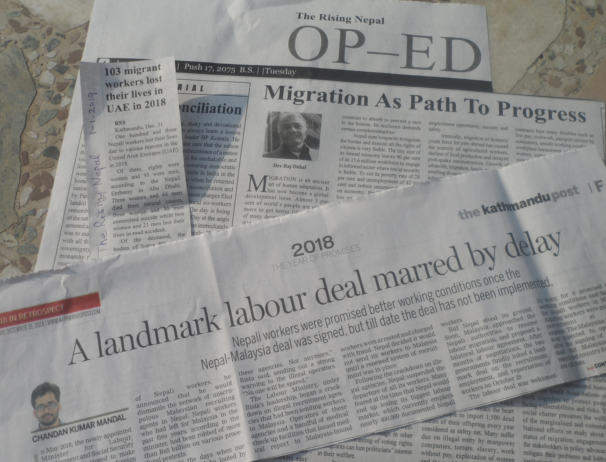


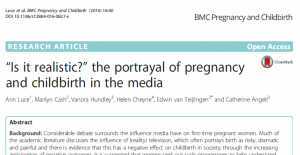
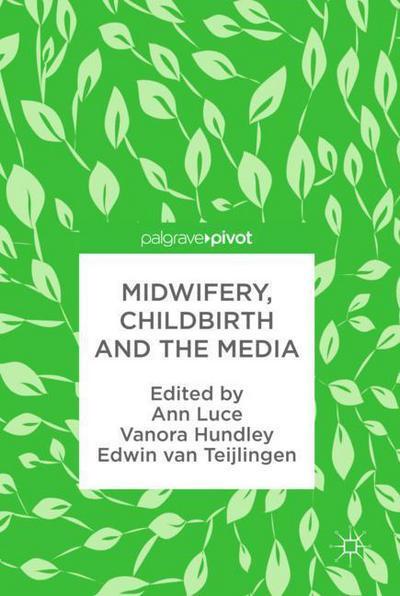

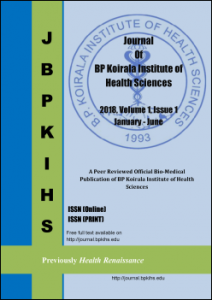
 Sustainability and consumer trust go hand-in-hand. Organisations need to understand what drives trust and how to build trust if they are to achieve sustainability. This was the message that Associate Professor Julie Robson delivered as part of her keynote presentation at the LIGUE (Laboratoire Interdisciplinaire en Gestion Université-Entreprise) in Carthage Tunisia.
Sustainability and consumer trust go hand-in-hand. Organisations need to understand what drives trust and how to build trust if they are to achieve sustainability. This was the message that Associate Professor Julie Robson delivered as part of her keynote presentation at the LIGUE (Laboratoire Interdisciplinaire en Gestion Université-Entreprise) in Carthage Tunisia.
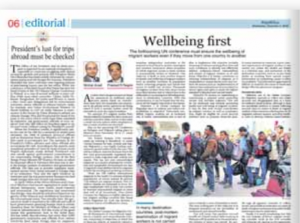


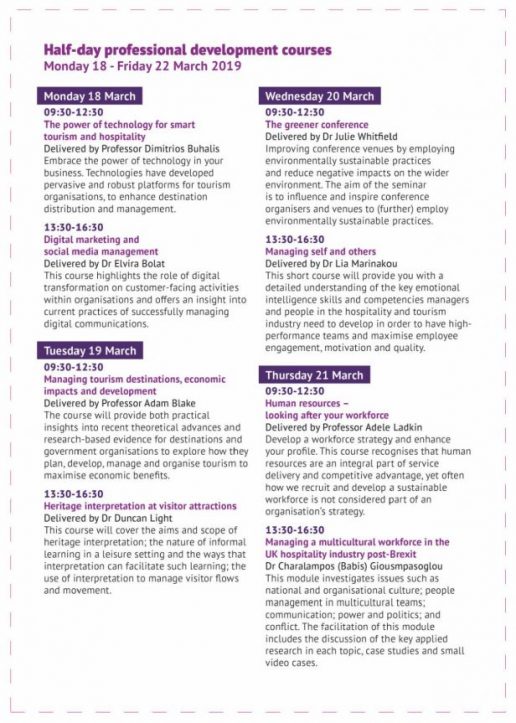
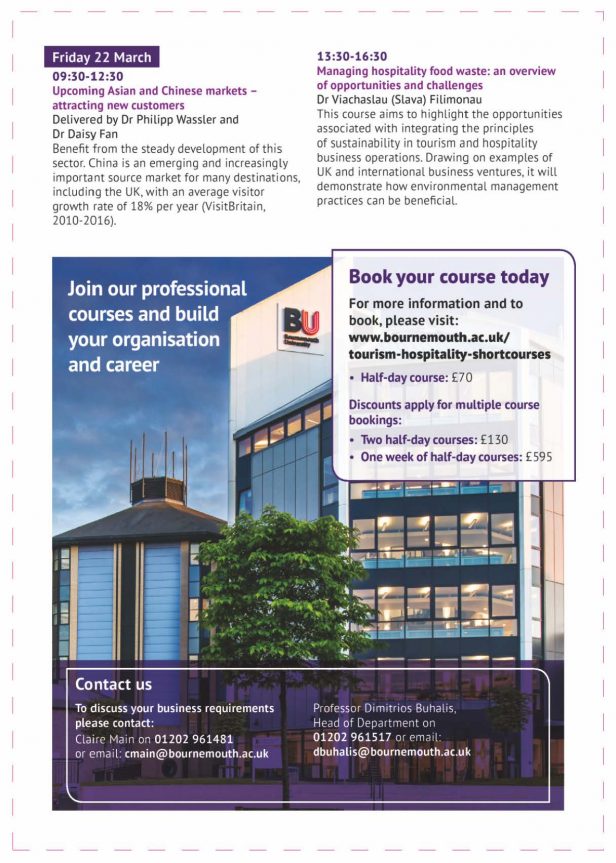





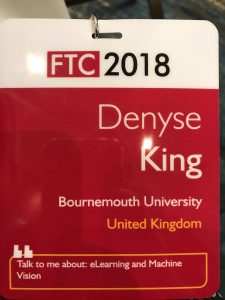
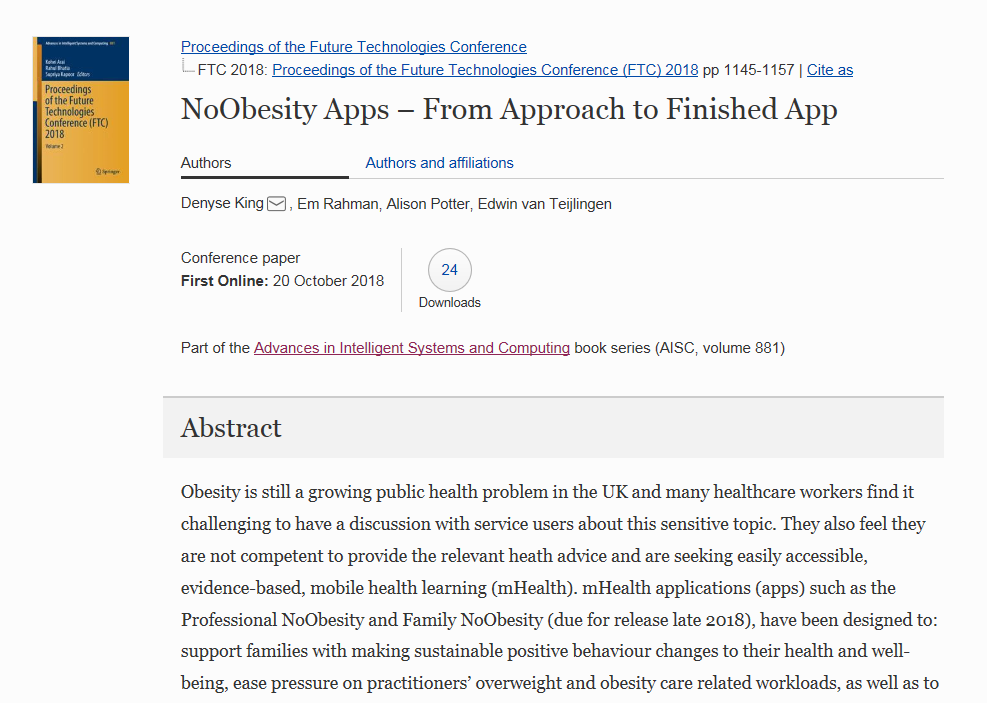












 SPROUT: From Sustainable Research to Sustainable Research Lives
SPROUT: From Sustainable Research to Sustainable Research Lives BRIAN upgrade and new look
BRIAN upgrade and new look Seeing the fruits of your labour in Bangladesh
Seeing the fruits of your labour in Bangladesh Exploring Embodied Research: Body Map Storytelling Workshop & Research Seminar
Exploring Embodied Research: Body Map Storytelling Workshop & Research Seminar Marking a Milestone: The Swash Channel Wreck Book Launch
Marking a Milestone: The Swash Channel Wreck Book Launch ECR Funding Open Call: Research Culture & Community Grant – Application Deadline Friday 12 December
ECR Funding Open Call: Research Culture & Community Grant – Application Deadline Friday 12 December MSCA Postdoctoral Fellowships 2025 Call
MSCA Postdoctoral Fellowships 2025 Call ERC Advanced Grant 2025 Webinar
ERC Advanced Grant 2025 Webinar Update on UKRO services
Update on UKRO services European research project exploring use of ‘virtual twins’ to better manage metabolic associated fatty liver disease
European research project exploring use of ‘virtual twins’ to better manage metabolic associated fatty liver disease